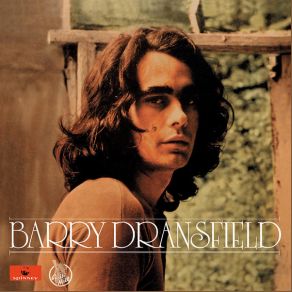Barry Dransfield
Download links and information about Barry Dransfield by Barry Dransfield. This album was released in 1972 and it belongs to Rock, World Music, Songwriter/Lyricist genres. It contains 11 tracks with total duration of 38:39 minutes.

|
|
|---|---|
| Artist: | Barry Dransfield |
| Release date: | 1972 |
| Genre: | Rock, World Music, Songwriter/Lyricist |
| Tracks: | 11 |
| Duration: | 38:39 |
| Buy it NOW at: | |
| Buy on iTunes $9.99 | |
| Buy on Amazon $12.99 | |
Tracks
[Edit]| No. | Title | Length |
|---|---|---|
| 1. | The Werewolf | 3:49 |
| 2. | Be My Friend | 3:40 |
| 3. | Jigs: Hyde Park Mansions / Irish Jig | 2:01 |
| 4. | She's Like a Swallow | 2:41 |
| 5. | Broken Barricades | 2:19 |
| 6. | Girl of Dances | 5:43 |
| 7. | Lots of Little Soldiers | 3:06 |
| 8. | Lily's Ballade | 4:00 |
| 9. | Reels: The Trip to Derrow / the Traveller / St. Anne's Reel | 3:13 |
| 10. | Robin Hood and the Peddlar | 4:18 |
| 11. | General Worthington | 3:49 |
Details
[Edit]This is one lost musical document that lives up to its reputation. Barry Dransfield's first solo album was an extraordinary debut, comprised of inspired original songs, traditional tunes, and some unexpected covers, including a solo folk rendition of Procol Harum's "Broken Barricades" — it was also one of the rarest folk-style albums of the 1970s, vinyl copies changing hands for ridiculously large amounts of money among collectors in the 30 years after its release. Dransfield is equally adept at solo fiddle playing ("Jigs: Hyde Park Mansions/Irish Jig") and a cappella singing (the first half of the haunting "She's Like a Swallow"), with some lyrical and dexterous acoustic guitars throughout. Dave Swarbrick and Martin Carthy are also along uncredited, but the dominant talent is Dransfield's, his rich expressive voice a haunting instrument in its own right and supported by virtuoso playing and rich yet restrained accompaniment — it's all worth hearing, from the oldest jigs and reels here to the Brooker/Reid piece, and even one music hall number that he learned from his father, though the best track here is the wry and hauntingly melodic "Robin Hood and the Peddlar." Rather sadly, Dransfield's rippling version of Matt McGinn's "Lots of Little Soldiers," which seemed so relevant in 1972 as an antiwar comment, lost none of its meaning, purpose, or importance in latter years.